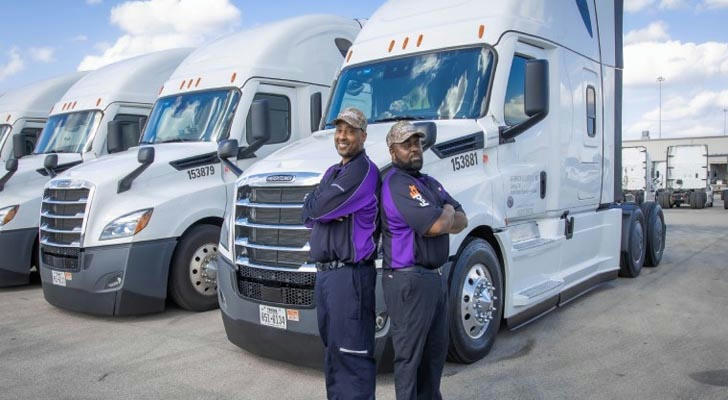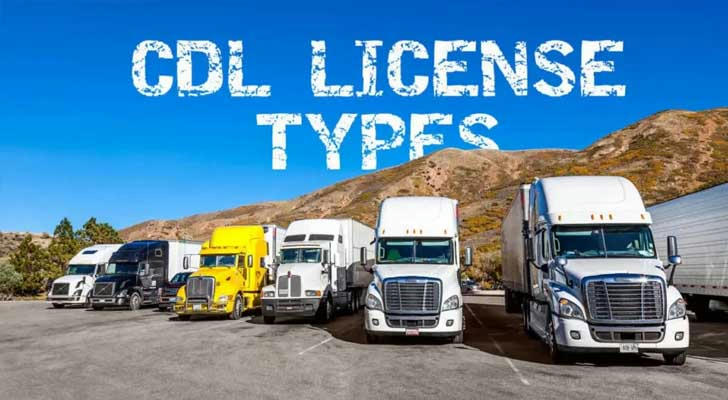The Road to Success: Everything You Need to Know About Getting a CDL
If you’ve ever been stuck behind a giant 18-wheeler on the highway, chances are you’ve wondered about the life of the person behind the wheel. Truck drivers are the backbone of the American economy, delivering goods from coast to coast, and many of them start their careers by earning a Commercial Driver’s License (CDL). But what exactly is a CDL, and how can it open doors to a whole new career path? Let’s take a ride through the world of CDL and explore why it’s a great option for those looking for adventure and a steady income.

What is a CDL?
A Commercial Driver's License (CDL) is a specialized license required for individuals who want to drive certain types of commercial vehicles, such as large trucks, buses, and delivery vehicles. The CDL is issued by state governments, but the rules and requirements are set at the federal level by the Federal Motor Carrier Safety Administration (FMCSA).
To drive a heavy vehicle or a vehicle that carries passengers, a person needs to pass specific written and driving tests to prove they can operate these vehicles safely. The most common types of CDLs are:
- Class A: For drivers who operate vehicles with a combined weight of over 26,001 pounds, such as tractor-trailers, big rigs, and 18-wheelers.
- Class B: For drivers who operate single vehicles that weigh more than 26,001 pounds, like dump trucks, buses, and box trucks.
- Class C: For smaller vehicles, typically for transporting passengers or hazardous materials, such as vans, small buses, or vehicles that carry more than 16 passengers.
Why Get a CDL?
So, why would anyone want to spend the time and effort to get a CDL? Well, there are several reasons that make this a great career path for many:
High Demand for Drivers: The trucking industry is booming, and there’s a massive shortage of qualified drivers in the U.S. With e-commerce and the demand for quick deliveries continuing to grow, truck drivers are in high demand across the country.
Good Pay: CDL drivers can earn a competitive salary, with many making upwards of $40,000 to $70,000 a year depending on experience and the type of truck they drive. Specialized drivers (e.g., those driving hazardous materials or oversized loads) can earn even more.
Travel Opportunities: If you like the idea of seeing new places, a career as a truck driver can give you the chance to travel across the country—or even internationally. You’ll get paid to drive and explore new cities and towns.
Job Stability: Trucking is one of the most stable industries in the U.S., offering long-term job security. No matter the state of the economy, goods still need to be transported.
Flexible Hours: Many trucking companies offer flexibility when it comes to schedules. Whether you want to drive long-haul across the country or do local deliveries, you have a range of options to choose from.

The CDL Training Process
Getting a CDL involves a combination of classroom learning, hands-on training, and passing both written and practical tests. The process can vary slightly from state to state, but here’s a general overview of what you can expect:
Enroll in a CDL Training Program: Many trucking schools and community colleges offer CDL training programs. These typically last a few weeks to a couple of months, depending on the type of CDL you’re seeking. During this time, you’ll learn the basics of vehicle operation, road safety, and traffic laws, while also getting behind the wheel of a truck for real-world experience.
Obtain a Commercial Learner’s Permit (CLP): Before taking the road test, you’ll need to pass a written exam to get your Commercial Learner’s Permit (CLP). This exam covers road signs, traffic laws, and vehicle operation. The CLP allows you to practice driving with a licensed CDL driver.
Pass the Road Test: Once you’ve completed your training and obtained your CLP, it’s time to pass the road test. This involves driving the truck on public roads while demonstrating your ability to handle different driving situations safely.
Get Endorsements: Depending on what type of cargo you want to haul or the vehicle you want to drive, you may need additional endorsements, such as for tanker trucks, hazardous materials, or passenger vehicles.
Start Your Career: After passing the tests and receiving your CDL, it’s time to hit the road! You’ll likely start as an entry-level driver with a company before gradually moving on to more specialized driving jobs.

Case Study: Mike’s Journey to Becoming a Truck Driver
Let’s take a look at Mike, a 32-year-old who worked in a factory for 10 years. Although he enjoyed his work, he felt like he was stuck in a rut. He wanted a change—something that involved more freedom and a chance to travel.
After researching different career options, Mike discovered that truck drivers were in high demand and that getting a CDL was a relatively fast way to enter a stable and well-paying career. Mike enrolled in a CDL training program at a local trucking school, where he learned everything from driving a rig to understanding the rules of the road.
After completing the program, Mike passed his road test and received his Class A CDL. He was hired by a national trucking company and soon found himself driving a long-haul route across the country. He had the chance to visit states he had never been to, and the flexibility of the job allowed him to spend more time with his family.
Now, three years later, Mike has built a solid career in the trucking industry, earning a comfortable salary and enjoying the independence that comes with the job. He even plans to start his own trucking business one day!
Mike’s story shows that with the right training and a little bit of adventure, getting a CDL can open up a whole world of opportunities.
Key Takeaways
- A CDL is required for driving large commercial vehicles, including trucks, buses, and other specialized vehicles.
- There’s a high demand for qualified truck drivers, leading to good job prospects and competitive pay.
- CDL training involves a mix of classroom learning and hands-on driving experience, along with passing written and road tests.
- The trucking industry offers flexibility, travel opportunities, and job stability, making it an attractive career path for many.
Conclusion: Ready to Drive Your Future?
If you enjoy the idea of hitting the open road, solving problems on the go, and securing a stable career, earning your CDL could be the best decision you ever make. Just like Mike, you can start a whole new chapter in your life, gaining both freedom and financial stability. Whether you’re interested in long-haul trucking or local deliveries, the world of commercial driving is waiting for you to take the wheel.
So, what are you waiting for? Start your engine, and drive your career forward! 🚚💨
